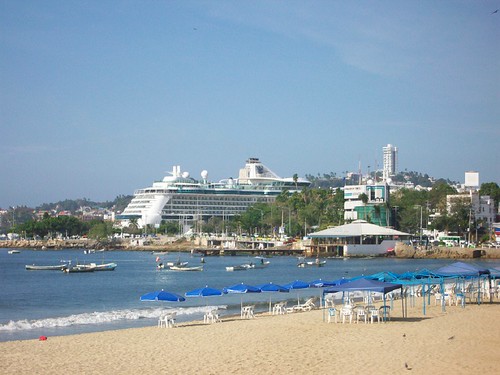Survey Reveals Airlines Treat Customers Bad
At first glance, this is kind of like saying that scientists have discovered water in oceans of the world. The actual headline is a little different. According to the Los Angeles Times, High-income fliers are unhappier with airlines, survey says. The article lists “high income” as people with a household income of at least $100,000 a year. Without getting into a debate on who is and who is not rich, it is easy to imagine a fairly middle class family with two wage earners having such an income. While $100,000 is certainly above the average household income in the United States, it is probably not that far above the average household income of an airline passenger. Simply put, I don’ think they are saying that people who normally fly in private jets are dissatisfied with airline travel.
Can You Blame Them?
People who travel by airline, and have a household income above $100,000 probably have certain expectations when they shell out a few hundred dollars or more for something. For example, if you were to walk into a store to purchase something that costs hundreds of dollars, you would not expect to have to wait in long lines at every occasion. You would probably hope that the employees of the company you are giving your business to would treat you with a minimum amount of courtesy and professionalism. As we know, airline employees are notorious for not providing this level of service. I could write a spirited defense of their behavior, citing pay, schedules, management, customers and the like, but that is not the point. Visit any airport and you will regularly see airline personnel treating passengers with a level of disregard and contempt that would get them fired from any hotel and even most fast food restaurants. Passengers are lectured, patronized, yelled at, and ignored. Management seems to have no problem with hundreds of people standing in line at a counter with 20 positions, that is only being attended by three customer service agents.
Fees Create Adversaries
The article cites increased airline fees as part of the source of passenger’s dissatisfaction:
Part of the reason for the negative feelings, Rheem said, is that passengers must pay fees to check bags, get better seats and receive meals, among other things.
“Passengers are not happy,” she said, “because they are being charged for things they didn’t pay for before.”
Certainly fees are part of the problem, but not directly. It has been my opinion that the fees have created an adversarial relationship between passengers and airline staff. Where passengers once purchased a product in advance and expected to be treated like a valued customer, they are now being targeted as a recurring revenue source at every interaction. There is real fear of unexpected fees for baggage, or being stuck in a middle seat because you didn’t pay extra for preferred seating. People are quite upset at the possibility of being separated from, and possibly charged for their carry ons because they didn’t pay a preferred boarding surcharge before the overhead bins filled up. At the same time, it is taking forever for the boarding process to complete as passengers struggle with each other for limited carry on space now that airlines are charging for baggage.
What Is Going On
It is just a rough environment out there. I would walk out of a restaurant or a hotel if I was treated like I have been on many airlines. Yes, I can try to avoid those carriers, (I am looking at you Frontier and United) but I do not always have the choice. At the same time, this is a story about an industry in trouble. They might want to blame the government, the fuel prices, or passengers purchasing tickets based on price, but there is no way to interpret this as anything other than an industry that is failing its customers.










